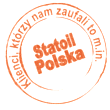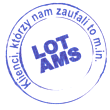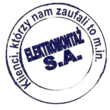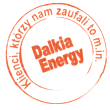Are you wondering about the CO boilers and stoves smoker course?
Heating systems are not only small furnaces that heat family homes, but also large boilers and furnaces that heat office or industrial buildings.
The heating installation is today an essential part of the construction of most buildings. Therefore, a person who is qualified to install and maintain heating installations can count on a stable and well-paid job. However, what is important to know before a potential candidate wants to enrol on a CO boiler and furnace stoker course?
What is the work of a CO boiler and stove stoves?
In the case of the profession of a stoker, a distinction is made between two positions: stoker of water-fired central heating boilers and stoker of gas-fired central heating boilers. They differ from each other in the type of fuel used in the heating system, including their operation and maintenance. The job of the stoker involves operating the furnaces and boilers of the heating system to provide hot water and space heating throughout the building. In addition, in production halls or workshops, the stoker also controls the equipment responsible for the production of technical steam. The stoker's duties mainly involve the proper inspection and maintenance of the flue gas and waste discharge equipment of the thermal installation, as well as ensuring the technical efficiency of the boilers and the control and measurement apparatus.
Who can take part in the CO boiler and stove stoker course?
Training as a boiler and central heating furnace stoker can be passed by virtually anyone. It is therefore an attractive choice for people who are looking to broaden their professional competence with a new qualification. The course for boiler and central heating cooker burners can be taken by anyone who:
- He has completed 18 years of age,
- She has at least an elementary school education,
- There are no medical contraindications to work in the field of installation and maintenance of thermal installations.
Anyone who meets these conditions can take the course and exam authorizing to work with central heating boilers and stoves.
The rights are valid for 5 years. After this period, you must retake the exam and pass it successfully to renew your qualifying benefits.
How long is the course for a stoker of CO boilers and stoves?
The length of training depends on many factors, but above all on the trainees' level of experience. For those who are already experienced in working with boilers and central heating boilers, special one-day training courses are organised to simply recall the most important information on the installation and maintenance of heating systems. This one-day training course concludes with an examination, held immediately on the same day.
For people who are just acquiring their first experience with the operation of central heating boilers and furnaces, the course may take up to several days. Longer courses normally take place during working hours, however many training centers offer evening classes as well as special weekend courses.
What is the course for a CO boiler and stove stoves?
In Poland, central heating boilers and furnaces are devices that require appropriate qualifications to operate. Due to the nature of the devices used in thermal installations, responsible and safe operation is extremely important here. Improper operation of central heating boilers and furnaces can lead to a serious disaster. Therefore, in order to be able to work with heating installations, you must pass an appropriate exam before a committee appointed by the Association of Polish Electrical Engineers. Obtaining a positive result in the exam provides qualification benefits enabling work with boilers and central heating furnaces.
Training for boilers and central heating cookers consists of two parts, theoretical and practical. In the theoretical part, trainees listen to lectures on the safe operation and maintenance of central heating systems. In the theoretical part of the course, trainees can learn, among other things, about
- Regulations on technical supervision of thermal installations,
- Organisation of work on boilers and central heating cookers,
- Smoker duties,
- General thermal technology issues,
- Fuel and materials used in central heating furnaces and boilers,
- Diagram of the central heating boiler room,
- Water installations in thermal management,
- Operation of boilers and furnaces,
- Heat networks and installations,
- Industrial equipment used in thermal installations,
- Maintaining appropriate technical documentation for maintenance,
- Health and safety at thermal equipment and at the position of CO burner,
- Fire protection and medical rescue in the field of work safety with central heating boilers and furnaces.
In the practical part, students practice in a controlled environment the information obtained in the theoretical part. Students can learn about the devices used in installation and maintenance on their own. In addition, each student has the opportunity to perform activities related to the installation, operation or maintenance of furnaces and central heating boilers. This is to prepare students for the final exam.
The exam also consists of a theoretical and practical part. In the theoretical part, students take a written exam to check their skills. The scope of questions in this part of the exam include:
- Classification of thermal boilers by design,
- Scope of factory documentation of the device,
- Knowledge of the legislation governing the work with furnaces and central heating boilers,
- Boiler operating principles,
- Types of fuel used in central heating cookers and boilers,
- Chemical processes in thermal installations,
- Health and safety at work with stoves and boilers, when it is possible to start work, how to safely complete work with the heating system, etc.
Then, in the practical part, students must pass an exam in the operation of furnaces and boilers, and perform correctly before a commission appointed by SEP all activities related to the installation, maintenance and operation of furnaces and central heating boilers. Anyone who passes both parts of the exam receives a qualification entitlement to work with furnaces and CO boilers for 5 years.
Most training companies offer both open and private courses. Open training courses are usually group classes and are conducted at regular intervals. Anyone who would like to expand their professional competences with qualifications to operate stoves and central heating boilers can sign up for this type of training.
In addition, most centers also conduct closed training. They are usually extra paid and are intended for companies willing to offer their employees training giving them additional competences. In such a case, the client himself has to report to the training company in order to enroll himself or a group of his employees for a course on boilers and central heating furnaces.
Do permits for boilers and central heating furnaces acquired in Poland allow for work abroad?
If someone is considering working in the field of thermal installations in a country other than Poland, it is important to first find out whether the qualifications acquired in Poland are recognised there. In other countries, the local equivalent of the SEP is responsible for issuing and checking qualifications. In some countries, those wishing to work in the field of heating installations with an SEP licence must undertake an additional, partial course. In others, this may involve taking a course on boilers and central heating cookers completely from scratch.
In some countries, people with Polish entitlements only need to have additional documentation. Most training centers issue such documentation for a fee.
Is it worth taking a course on a CO boiler and stove stoves?
Training as a CO boiler and furnace stoker is often rated as one of the simpler ones, so anyone who would like to acquire new skills that could help them make a career change can try their hand at the course. A qualification to work with boilers and central heating furnaces provides access to stable work in many sectors. In addition, CO boiler and furnace stokers who install boilers and furnaces often work in their own business on comfortable terms, so it is worth considering doing a CO boiler and furnace stoker course.






































